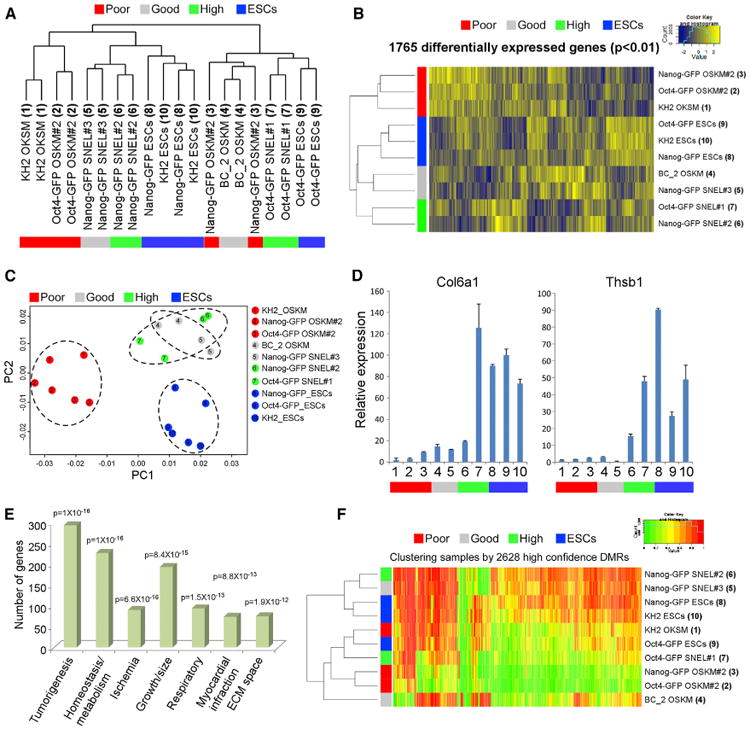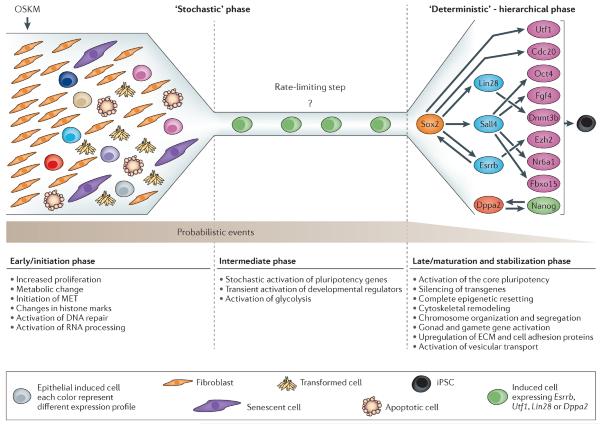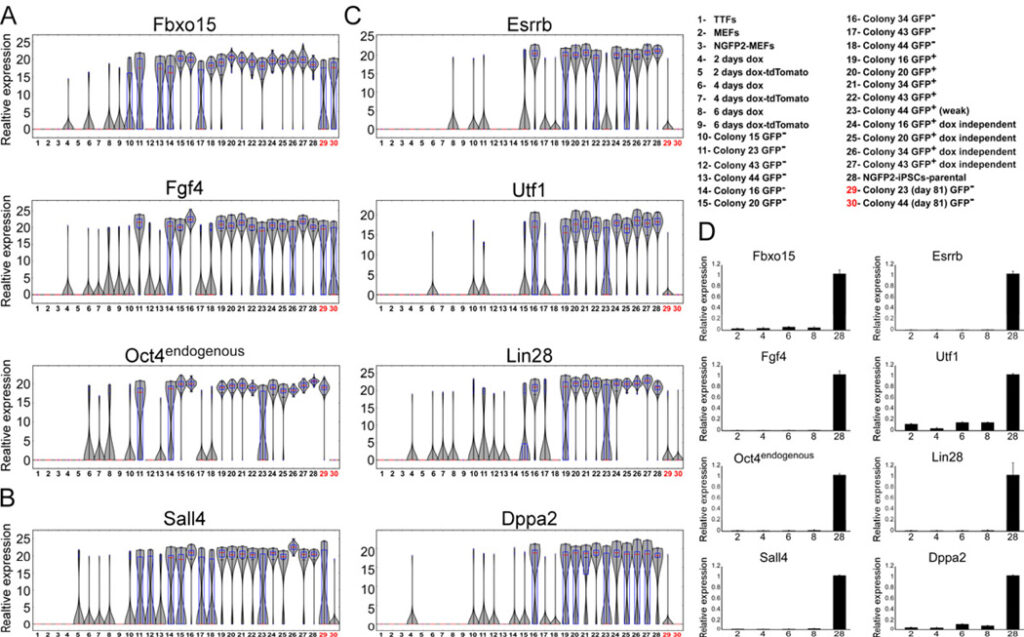Extensive Nuclear Reprogramming Underlies Lineage Conversion into Functional Trophoblast Stem-like Cells
Induced pluripotent stem cells (iPSCs) undergo extensive nuclear reprogramming and are generally indistinguishable from embryonic stem cells (ESCs) in their functional capacity and transcriptome and DNA methylation profiles
The developmental potential of iPSCs is greatly influenced by reprogramming factor selection

Induced pluripotent stem cells (iPSCs) are commonly generated by transduction of Oct4, Sox2, Klf4, and Myc (OSKM) into cells. Although iPSCs are pluripotent, they frequently exhibit high variation in terms of quality, as measured in mice by chimera contribution and tetraploid complementation.
Mechanisms and models of somatic cell reprogramming

Conversion of somatic cells to pluripotency by defined factors is a long and complex process that yields embryonic-stem-cell-like cells that vary in their developmental potential.
Single-cell expression analyses during cellular reprogramming reveal an early stochastic and a late hierarchic phase

During cellular reprogramming, only a small fraction of cells become induced pluripotent stem cells (iPSCs). Previous analyses of gene expression during reprogramming were based on populations of cells, impeding single-cell level identification of reprogramming events
Revolutionizing Seafood: Marinexcell’s Breakthrough in Mass Production

Marinexcell, a pioneering start-up, is at the forefront of transforming the seafood industry with its proprietary and groundbreaking process for mass-producing authentic shrimp, lobster, and crab meat. This innovation is set to redefine the way we approach and consume these delectable delicacies.
Plant-based meat may no longer be animal-free

As consumers have become more health conscious over the years, with the vegan lifestyle getting a boost in popularity, you would think that the demand for plant-based meat would be skyrocketing. Well, that seems to not be the case as the plant-based meat industry is facing a decline in demand.